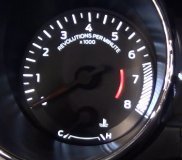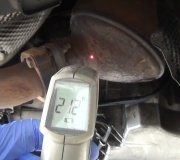Friday, September 16th, 2016 AT 9:00 PM
So today I purchased this vehicle for my cousin. Everything looked fine with it besides a minor oil leaks and a few cab lights out. I test drove it in a gated community (25mph) and it ran fine. After I purchased it and drove it home I noticed something I have never seen a vehicle do before. First while accelerating quickly the headlights will get brighter, then after the transmission shifts they will return back to normal. Not just that but when accelerating from red lights up to around 50 mph, around 3k rpm or 45 mph the radio will cut out, and the back dome lights will come on for around 3 seconds, while this is happeneding the dashboard display lights will go from brighter to darker, as well as the headlights. By the time I got home the driver side headlight was out (not sure if it was just old or a result of this). Im currious on if this is an alternator issue, battery issue, or some circuit that is loose. Please help me, I would hate to give her a car that is having these issues.


